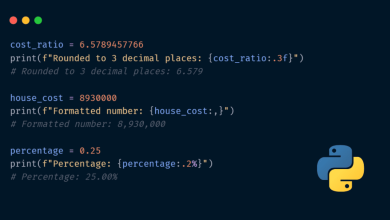The AI Boom Drives Demand for Software Engineers

Anybody that hasn’t been living under a rock for the last three years has heard about ChatGPT. This AI platform currently has over 200 million monthly users.
Of course, ChatGPT isn’t the only AI platform that is gaining traction. Many other AI startups are being launched every day. We have a list of the 30 largest and most influential AI companies.
As AI technology becomes more important in our daily lives, more technology startups are going to develop AI solutions to help businesses and consumers solve their most common problems. Of course, in order to meet these needs, they will have to hire talented software engineers. We talked about how AI is shaping the software engineering profession, but software engineers are also needed to develop new AI applications.
Demand for Software Engineers Grows with Interest in AI
In recent years, due to the advancements technologically, the role of software engineers has transcended traditional boundaries moving into new positions and industries while garnering greater demand as its own skill set. The vast and ever quickening requirement for companies to maintain a high level of effectiveness and competitiveness no matter the industry means that companies have had to adapt.
Adaptation in the 21st century is generally founded upon access to, and the effectiveness of, whatever software is being utilized. The penetration of various industries that once operated largely independent of technology is now just a commonplace requirement to exist within a world that is primarily operating in a digital space. The growing demand for AI software has made them even more needed than ever.
As a result, software engineers and their work have become one of the most sought-after professions— no matter the industry. That high demand, in combination with new opportunities emerging and flourishing across once diverse and unconventional fields, means that software engineers as a whole will likely maintain that level of demand for decades to come. From healthcare and agriculture to entertainment, or education, the demand for skilled coders is not just a trend, it marks a fundamental shift in how businesses must operate in the world’s digital economies.
The growing demand for software engineers across diverse and unconventional fields underscores the adaptability and versatility of coding skills. As AI technology continues to shape the modern world, the ability of software engineers to innovate, problem-solve, and leverage data will only become more evident and necessary. Businesses that fall behind will very likely be eclipsed by other competitors worldwide. They need to be willing to pay the cost of hiring qualified software engineers to maintain a competitive edge in a world driven by AI.
While there are more than a handful of reasons as to why software engineers are in such high demand, the following contains a collection of points that tend to summarize some of the most pressing points.
The Digital Transformation of Traditional Industries
Many sectors have embraced digital transformation as a means of improving efficiency, enhancing customer experience, and staying competitive. Industries like manufacturing, agriculture, and even construction are now leveraging technologies like the Internet of Things (IoT), artificial intelligence (AI), and machine learning.
Software engineers are pivotal in developing, implementing, and maintaining these technologies, allowing companies to streamline operations and harness data analytics for informed decision-making. Smart farming is just one example that has emerged as a significant trend where software engineers design applications that optimize crop yields through data analysis, weather forecasting, and resource management.
Tech-Enabled Startups
The start-up ecosystem has blossomed, with an increasing number of ventures focusing on innovative solutions that enhance and challenge conventional business models. Software engineering is indispensable to these tech-enabled start-ups.
For example, EdTech companies are using software engineers to develop interactive learning platforms that enhance the educational experience for both learners and educators working on their doctorate in education. Meanwhile, mental health apps are employing tech to create platforms for therapy and emotional support, directly addressing societal challenges.
Much of the success and demand for these niche businesses is due to the cleverness of capitalization on the growing intersection of software engineering with unconventional business models.
Applications in Data Science
Data is often referred to as the new oil, and software engineers play a crucial role in extracting value from this resource. Skills in data science and analytics are now highly sought after and applicable across diverse fields ranging from finance to sporting analytics. Software engineers use algorithms and data modeling to derive insights that inform decisions, predict trends, and optimize operations, thus driving progress across various industries.
Sports analytics, for instance, where software engineers analyze player performance and game strategies through sophisticated modeling and algorithms. The insights gained from such analyses are reshaping how teams operate, making software engineers indispensable in even the most unconventional environments.
Remote Work and Global Communications Collaboration
The COVID-19 pandemic drastically accelerated the shift towards remote work. Remote, global collaboration has opened up exciting opportunities for most professionals, but software engineers are a major driving factor of that availability in any industry. As a result, companies are now hiring engineers from anywhere in the world.
Now, businesses are actively seeking tech-savvy individuals to help them leverage new technologies in their fields. The ability to work remotely has expanded the horizons of what’s possible in business and global communications, making software engineering an appealing path for professionals all over the map.




